Aerion DID
Aerion DID
Privacy-Centric Applications
Aerion DID provides developers with sophisticated tools to build intelligent, privacy-centric applications while empowering users with absolute control over their digital identities. Users can manage, modify, or completely revoke their identities without dependence on any centralized authority. Developers can implement secure authentication mechanisms that actively protect and preserve user privacy.
Privacy
Users can authenticate while keeping their personal data private.
Zero Storage
Validate claims without collecting data and personal information.
Security
Strong encryption methods keep personal data secure at every level.
Self-Owned Identity
Users hold and control their identity without sharing unnecessary data.
Secure Credentials
Aerion’s identity system is built on a zkVM-native identity circuit architecture, where each user’s identity is a cryptographically verified set of credentials.
DID Governance
Developers can use Aerion DID to enable decentralized voting or governance mechanisms, where each participant’s identity is cryptographically verified
Encrypted Claim Verification Process
Decentralized Identity allows users to authenticate and verify their specific claims such as age, location, or professional status without revealing any sensitive details. Users can prove something is true while keeping their personal information hidden, ensuring that their data remains private and secure.
Cryptographic Authentication
Organizations don’t need to manage identity storage, credential revocation, or verification databases. All of that is handled cryptographically through Aerion’s zkVM and Merkle commitment models. Issuers simply sign the credential, users store it off-chain, and smart contracts check validity via proof inputs. Instead of processing raw user data, applications receive succinct zk-proofs confirming that user-defined conditions are satisfied.
Consult our whitepaper to learn more about Aerion DID and discover other innovative solutions from Aerion, with additional insights into our economic model and the long-term vision behind our ecosystem.

Aerion DID
Privacy-Centric Applications
Aerion DID provides developers with sophisticated tools to build intelligent, privacy-centric applications while empowering users with absolute control over their digital identities. Users can manage, modify, or completely revoke their identities without dependence on any centralized authority. Developers can implement secure authentication mechanisms that actively protect and preserve user privacy.
Privacy
Users can authenticate while keeping their personal data private.
Zero Storage
Validate claims without collecting data and personal information.
Security
Strong encryption methods keep personal data secure at every level.
Self-Owned Identity
Users hold and control their identity without sharing unnecessary data.
Encrypted Claim Verification Process
Decentralized Identity allows users to authenticate and verify their specific claims such as age, location, or professional status without revealing any sensitive details. Users can prove something is true while keeping their personal information hidden, ensuring that their data remains private and secure.
Secure Credentials
Aerion’s identity system is built on a zkVM-native identity circuit architecture, where each user’s identity is a cryptographically verified set of credentials.
DID Governance
Developers can use Aerion DID to enable decentralized voting or governance mechanisms, where each participant’s identity is cryptographically verified
Cryptographic Authentication
Organizations don’t need to manage identity storage, credential revocation, or verification databases. All of that is handled cryptographically through Aerion’s zkVM and Merkle commitment models. Issuers simply sign the credential, users store it off-chain, and smart contracts check validity via proof inputs. Instead of processing raw user data, applications receive succinct zk-proofs confirming that user-defined conditions are satisfied.
How are identities structured in Aerion DID architecture?
Each identity is constructed as a Merkle tree of commitments to individual credentials, where each leaf represents a hashed claim. This tree is processed within Aerion’s zkVM, allowing users to generate zero-knowledge proofs for specific claims by referencing only a small subset of leaves and the Merkle path to the root. This design enables efficient proof generation and minimizes data exposure. The root commitment serves as the anchor that smart contracts use to verify the validity of any derived claim, without requiring access to the full identity tree or underlying data.
How does Aerion verify the authenticity of a claim’s issuer?
Each issuer is associated with a verifiable on-chain public key or smart contract address. When a user generates a proof based on a credential, the zkVM circuit checks the signature against the known issuer public key and ensures that the credential was included in the identity Merkle root. This process validates issuer authenticity deterministically and ensures that only trusted entities can produce valid, zk-proven claims.
How are claims validated within Aerion DID?
Claims within Aerion DID are validated using zero-knowledge proofs, which ensure strong privacy and integrity without revealing the underlying data. When a user needs to authenticate or demonstrate a specific claim they generate a zero-knowledge proof tied to that credential. Aerion’s zkVM executes deterministic zk-circuits that verify the proof against the issuer’s cryptographic signature and the state commitment of the claim. This process guarantees that only authentic, issuer-approved claims are accepted by smart contracts or dApps, while ensuring that no additional information about the user or their identity is disclosed. The result is a secure, trustless verification mechanism that maintains privacy and upholds the composability of credentials across decentralized systems.
What types of credentials can DAOs issue?
DAOs can issue a diverse array of credentials tailored to their governance model and specific use cases. These may include membership verification, reputation scores, voting history, contributor roles, proof of participation in events or projects, access to resources or funds, compliance with governance rules, and eligibility for governance positions. These credentials can be used in dApps to control access to exclusive features, enforce participation rules, or validate eligibility for DeFi protocols.
Privacy-Centric Applications
Aerion DID provides developers with sophisticated tools to build intelligent, privacy-centric applications while empowering users with absolute control over their digital identities. Users can manage, modify, or completely revoke their identities without dependence on any centralized authority. Developers can implement secure authentication mechanisms that actively protect and preserve user privacy.
Privacy
Users can authenticate while keeping their personal data private.
Zero Storage
Validate claims without collecting data and personal information.
Security
Strong encryption methods keep personal data secure at every level.
Self-Owned Identity
Users hold and control their identity without sharing unnecessary data.
Secure Credentials
Aerion’s identity system is built on a zkVM-native identity circuit architecture, where each user’s identity is a cryptographically verified set of credentials.
DID Governance
Developers can use Aerion DID to enable decentralized voting or governance mechanisms, where each participant’s identity is cryptographically verified
Encrypted Claim Verification Process
Decentralized Identity allows users to authenticate and verify their specific claims such as age, location, or professional status without revealing any sensitive details. Users can prove something is true while keeping their personal information hidden, ensuring that their data remains private and secure.
Cryptographic Authentication
Organizations don’t need to manage identity storage, credential revocation, or verification databases. All of that is handled cryptographically through Aerion’s zkVM and Merkle commitment models. Issuers simply sign the credential, users store it off-chain, and smart contracts check validity via proof inputs. Instead of processing raw user data, applications receive succinct zk-proofs confirming that user-defined conditions are satisfied.
Consult our whitepaper to learn more about Aerion DID and discover other innovative solutions from Aerion, with additional insights into our economic model and the long-term vision behind our ecosystem.
How are identities structured in Aerion DID architecture?
Each identity is constructed as a Merkle tree of commitments to individual credentials, where each leaf represents a hashed claim. This tree is processed within Aerion’s zkVM, allowing users to generate zero-knowledge proofs for specific claims by referencing only a small subset of leaves and the Merkle path to the root. This design enables efficient proof generation and minimizes data exposure. The root commitment serves as the anchor that smart contracts use to verify the validity of any derived claim, without requiring access to the full identity tree or underlying data.
How does Aerion verify the authenticity of a claim’s issuer?
Each issuer is associated with a verifiable on-chain public key or smart contract address. When a user generates a proof based on a credential, the zkVM circuit checks the signature against the known issuer public key and ensures that the credential was included in the identity Merkle root. This process validates issuer authenticity deterministically and ensures that only trusted entities can produce valid, zk-proven claims.
How are claims validated within Aerion DID?
Claims within Aerion DID are validated using zero-knowledge proofs, which ensure strong privacy and integrity without revealing the underlying data. When a user needs to authenticate or demonstrate a specific claim they generate a zero-knowledge proof tied to that credential. Aerion’s zkVM executes deterministic zk-circuits that verify the proof against the issuer’s cryptographic signature and the state commitment of the claim. This process guarantees that only authentic, issuer-approved claims are accepted by smart contracts or dApps, while ensuring that no additional information about the user or their identity is disclosed. The result is a secure, trustless verification mechanism that maintains privacy and upholds the composability of credentials across decentralized systems.
What types of credentials can DAOs issue?
DAOs can issue a diverse array of credentials tailored to their governance model and specific use cases. These may include membership verification, reputation scores, voting history, contributor roles, proof of participation in events or projects, access to resources or funds, compliance with governance rules, and eligibility for governance positions. These credentials can be used in dApps to control access to exclusive features, enforce participation rules, or validate eligibility for DeFi protocols.


